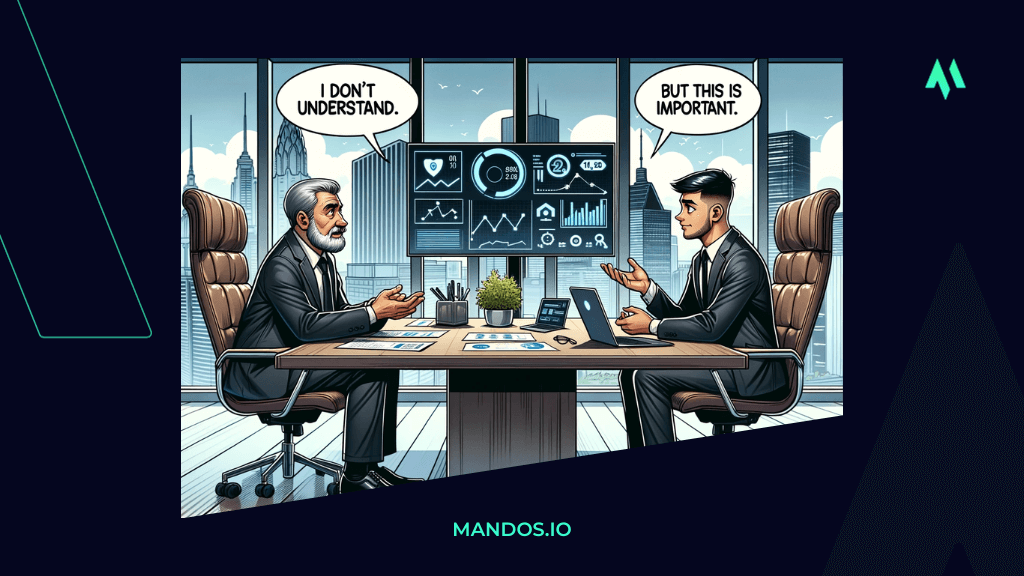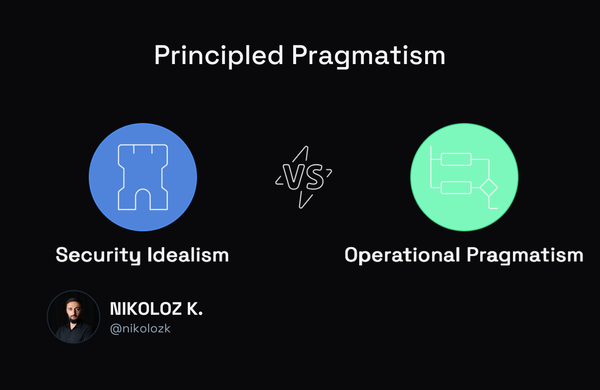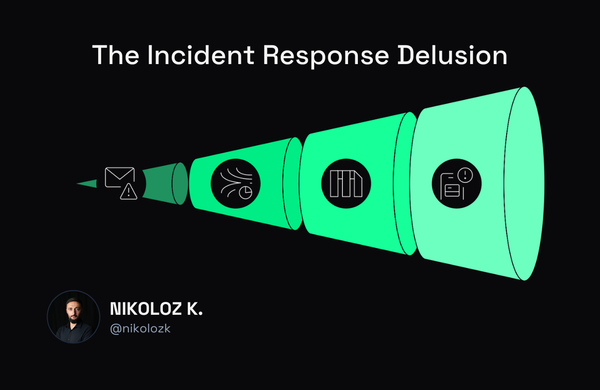Why Executives Treat Cybersecurity as an Operational Issue

Nikoloz Kokhreidze
Explore the six key reasons executives view cybersecurity as an operational issue rather than a strategic asset. Learn what prevents a security-driven growth.

Cybersecurity functions are often confined to the realm of "operational necessity." Many executives view it as a lose-lose situation: either you get attacked and lose reputation and profit, or you don't and feel like your investment in security was wasted.
This mindset persists even as many companies have undergone digital transformation journeys.
Several factors contribute to this outlook:
Reason 1: Perception Of Cybersecurity As A Technical Responsibility
Traditionally, cybersecurity has been viewed as the domain of technical teams. These teams have been seen as providers of internal services rather than providers of strategic advantage. And since companies often follow traditional management approaches that historically worked, changing this perception becomes challenging.

Reason 2: The Mischaracterization of Threats
Executives often view cyber threats as random, unpredictable events. In reality, cyber attacks are often predictable events that exploit specific weaknesses in an organization's strategy or technical infrastructure.
This mindset leads to a defensive posture focused on damage control rather than prevention. It's a reactive approach, treating cybersecurity as an operational issue to be managed, not a strategic one to be led.
Reason 3: Hiding Cyber Attacks
Companies frequently conceal cyber attacks, creating a barrier to the exchange of valuable insights and best practices. Executives and board members often believe that publicizing an attack would damage the company's reputation further. This mindset leads to a lack of shared learning across the industry.
By not sharing best practices, organizations miss out on collective wisdom that could help prevent future attacks. This contributes to a false narrative among industry players that cyber attacks are isolated incidents with minimal business impact.
In reality, the opposite is true. Cyber attacks can have far-reaching consequences, affecting not just the targeted company but also its partners, customers, and even the broader industry. By keeping information hidden, companies are essentially handicapping their long-term resilience and the security posture of the industry at large.
Reason 4: Skill Gap
The skill gap in the C-suite is a significant roadblock to transforming cybersecurity from an operational issue to a strategic one. Executives may not have the technical expertise to fully grasp the complexities of cybersecurity, leading them to delegate it to specialized teams. These teams, while skilled in their domain, may lack the ability to articulate the strategic implications of cybersecurity to senior leadership.
This creates a communication loop that's hard to break. Executives say, "I don't understand this; you handle it," while the cybersecurity teams respond, "I can't explain it in your terms, but trust me, it's important." This cycle keeps cybersecurity being perceived as an operational issue rather than integrating it into the broader business strategy.
Reason 5: Expertise Bias
Executives naturally gravitate towards their areas of expertise when making strategic decisions. This can lead to a blind spot when it comes to cybersecurity, especially if they lack firsthand experience in dealing with cyber attacks. The absence of past incidents may falsely reassure them that everything is fine, leading to complacency.
This expertise bias can be dangerous. It creates a situation where cybersecurity is treated as an operational issue rather than a strategic one. Executives may find it challenging to make informed decisions on cybersecurity because they don't fully understand its complexities and implications.
Reason 6: ROI Perception
The concept of return on investment (ROI) is a critical driver in executive decision-making. Executives are naturally inclined to allocate resources to initiatives where the ROI is easily measurable and immediate.
Cybersecurity often doesn't fit neatly into this framework. Its ROI is not always straightforward to calculate, as the benefits are preventive and long-term rather than immediate and revenue-generating.
For example, you may invest in advanced threat detection systems, but the ROI becomes evident only when a potential breach is successfully averted. This makes it challenging to showcase the financial upside of cybersecurity investments in traditional ROI models.
However, this narrow view of ROI can be dangerous. The cost of not investing in cybersecurity can be massive, including financial losses, reputation damage, and legal consequences.
Conclusion
The outdated view of cybersecurity as just an operational issue is a roadblock to business growth and resilience. This mindset is rooted in misperceptions and traditional practices that need a shift. CISOs and tech leaders are best positioned to drive this change. They must take the reins to reframe cybersecurity as a strategic asset, not just a cost center or operational necessity.
By bridging communication gaps, redefining ROI, and fostering a culture of openness, these leaders can shift the organizational mindset. This will not only mitigate risks but also unlock new avenues for security-driven growth. It's time for CISOs and tech leaders to lead this change and bring cybersecurity to the forefront of business strategy.




